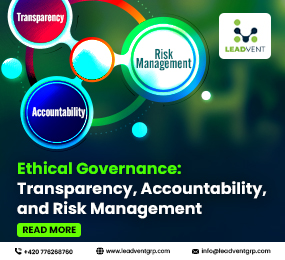Africa’s Climate Future: The Role of ESG in Building Resilient Economies
Africa is no stranger to climate volatility. Droughts, floods, and heatwaves are becoming more frequent and severe, affecting food systems, water access, energy supply, and livelihoods. Yet, the continent contributes only a small fraction of global carbon emissions. This imbalance has turned global attention toward climate justice—and with it, the potential of ESG (Environmental, Social, and Governance) principles as a tool for resilient development.
ESG, once a corporate buzzword, now plays a meaningful role in shaping investment decisions, development programs, and government policies across Africa. At its core, ESG provides a framework for evaluating long-term risks and opportunities—not just for companies, but for communities and nations navigating a changing climate.
Environmental Focus: More Than Carbon
In Africa, environmental responsibility isn’t just about reducing emissions. It’s about restoring degraded land, managing scarce water resources, and adapting to unpredictable weather patterns. From reforestation initiatives in the Sahel to climate-smart farming in East Africa, governments and civil society are actively working to build systems that can absorb environmental shocks.
These efforts are increasingly backed by ESG-conscious investors looking to fund projects that deliver measurable environmental impact alongside financial returns. The emergence of green bonds, nature-based solutions, and clean energy investments is a sign of growing confidence in Africa’s sustainability transition.
Social Equity and Climate Resilience
Social considerations are equally critical. Climate change often hits the most vulnerable populations the hardest—smallholder farmers, informal workers, and communities with limited access to infrastructure or healthcare.
By integrating social metrics into ESG assessments, investors and policymakers are being pushed to look beyond profitability. Programs that support gender equity, youth employment, and education are now seen as central to building climate resilience. For example, renewable energy projects that include local training and job creation are more likely to gain long-term traction and social license.
Governance: A Foundation for Sustainable Growth
Good governance underpins the success of ESG in Africa. Transparent regulations, anti-corruption measures, and clear sustainability policies help attract capital and build trust among stakeholders. Encouragingly, many African governments and stock exchanges are now requiring ESG disclosures or offering incentives for sustainability-aligned practices
But challenges remain. ESG reporting is still inconsistent, and many local companies struggle with limited resources or know-how. Bridging this gap will require capacity-building, policy support, and international cooperation.
Key Takeaway
Africa’s climate journey is about more than adaptation—it’s about transformation. ESG, when tailored to the continent’s unique context, offers a pathway to build resilient, inclusive economies that can thrive in a low-carbon world.
Learn more on our website: https://www.leadventgrp.com/events/esg-and-climate-africa-summit/details
For more information and group participation, contact us: [email protected] .
Leadvent Group - Industry Leading Events for Business Leaders!
www.leadventgrp.com | [email protected]
















